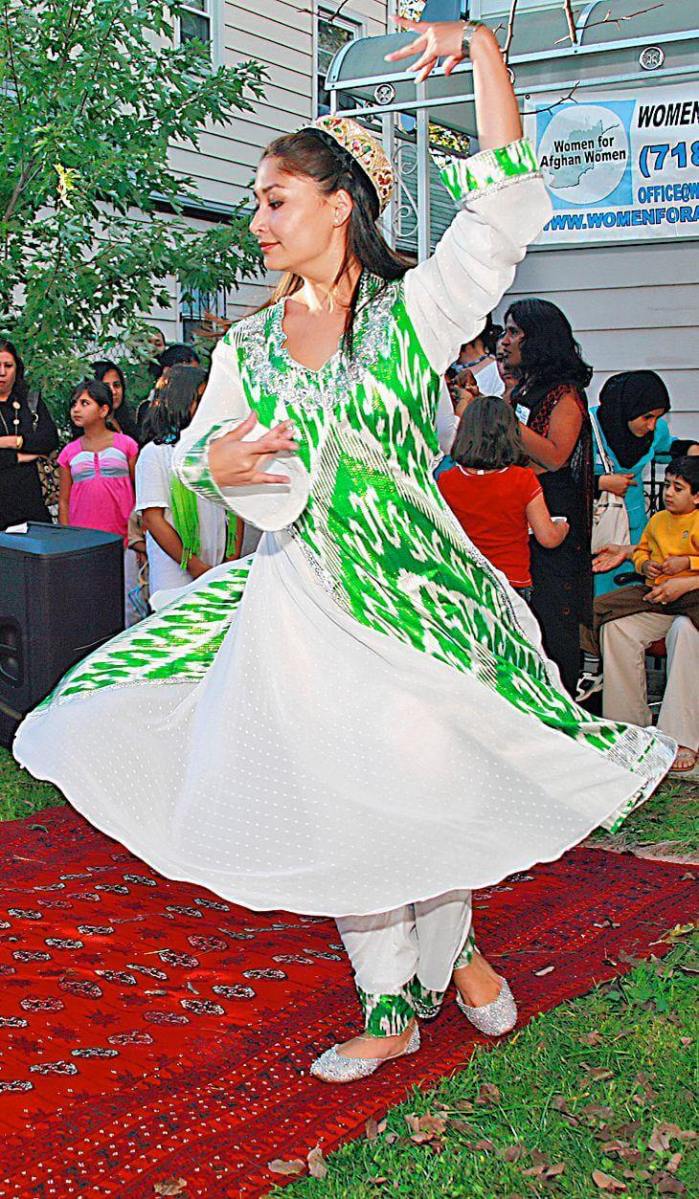By Anna Gustafson
In an unassuming house in Fresh Meadows, the extraordinary happens.
There, in the Women for Afghan Women’s new home at 158-24 173rd Ave., individuals from throughout the city gather to support Afghan women in Queens and abroad. They help to shelter victims of domestic violence, support the children of women incarcerated in Afghanistan and provide support groups and English classes.
The nonprofit moved from its College Point site to Fresh Meadows this past summer, and the group that assists thousands of Afghan women held a housewarming party Friday.
“In College Point we did great work, but here we’re in the heart of the Afghan community,” said Sunita Viswanath, a board member and cofounder of Women for Afghan Women, which was launched in 2001. “This is our ideal space because women can walk here, it’s accessible by public transportation for volunteers and it’s a house, so women feel at home here.”
On Friday, dozens of people from Queens, as well as other parts of the city, celebrated the new space with food, drink and a general sense that this new place was going to be more than an office — it was going to a home that inspires people around the world to support the Afghan community.
“Right now women in the community are very happy we’re here,” said Shakila Hamidi, the program manager for WAW, who grew up in Afghanistan. “They’re very supportive of us. The women here, some come to study, some come because of domestic violence, some come for translation help, some come to spend time with other women. Whatever they come for, we will help them.”
Women for Afghan Women started in 2001 and has grown to serve about 2,000 people annually, Hamidi said. The organization, which has been feted by human rights activists worldwide, offers free classes to Afghan women and girls in Queens, including English as a Second Language, yoga and computer classes. It helps individuals study for U.S. citizenship and drivers’ license exams as well. It routinely works with women who have suffered from domestic violence and will provide shelter for the victims who turn to it for help.
“We’re beginning a safe home project and we’re making a list of people in the community who will shelter women in crisis,” Viswanath said.
The group has grown to be a strong presence in Afghanistan as well and now runs secret shelters in five cities for anyone who has suffered a human rights violation, and in November 2009 it launched a residence for 40 children who had been living in the Kabul women’s prison with their mothers who were incarcerated there. Each child is now in school.
The organization recently received a grant that provides part of the money needed to launch the group’s next initiative, which is to start a halfway house for women in two cities, allowing women who have been released from jail to go there and receive literacy and vocational training.
Naheed Bahram, a WAW social worker, said she was thrilled to find the organization shortly after arriving in the United States from her native Afghanistan.
“I was badly homesick,” said Bahram, who is going for her master’s in social work at Queens College next year. “Five or six months after I came here, I came to WAW, and I started volunteering.”
Esther Hyneman, a WAW board member from Greenwich Village, said she hopes the Queens, city and international community will rally around WAW’s cause.
“People who are interested in human rights should support Women for Afghan Women,” Hyneman said. “You don’t have to be a part of the Afghan community. I’m Jewish, and I’m here because the issue of human rights for women is paramount. Women are ignored. If women’s human rights were protected, and women had the same opportunities, the world would be a different place.”
For more information, visit womenforafghanwomen.org or e-mail office@womenforafghanwomen.org.
Reach reporter Anna Gustafson by e-mail at agustafson@cnglocal.com or by phone at 718-260-4574.



































